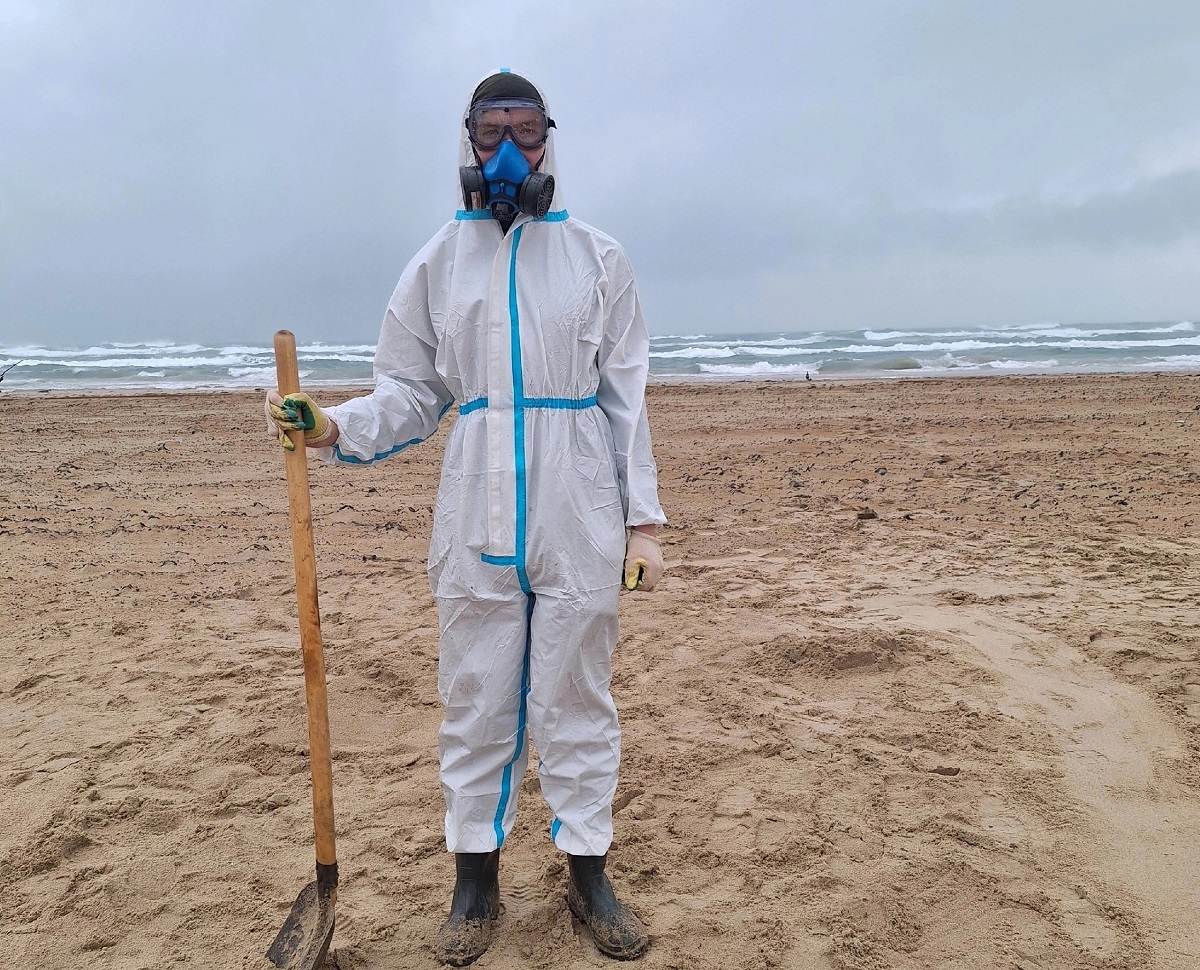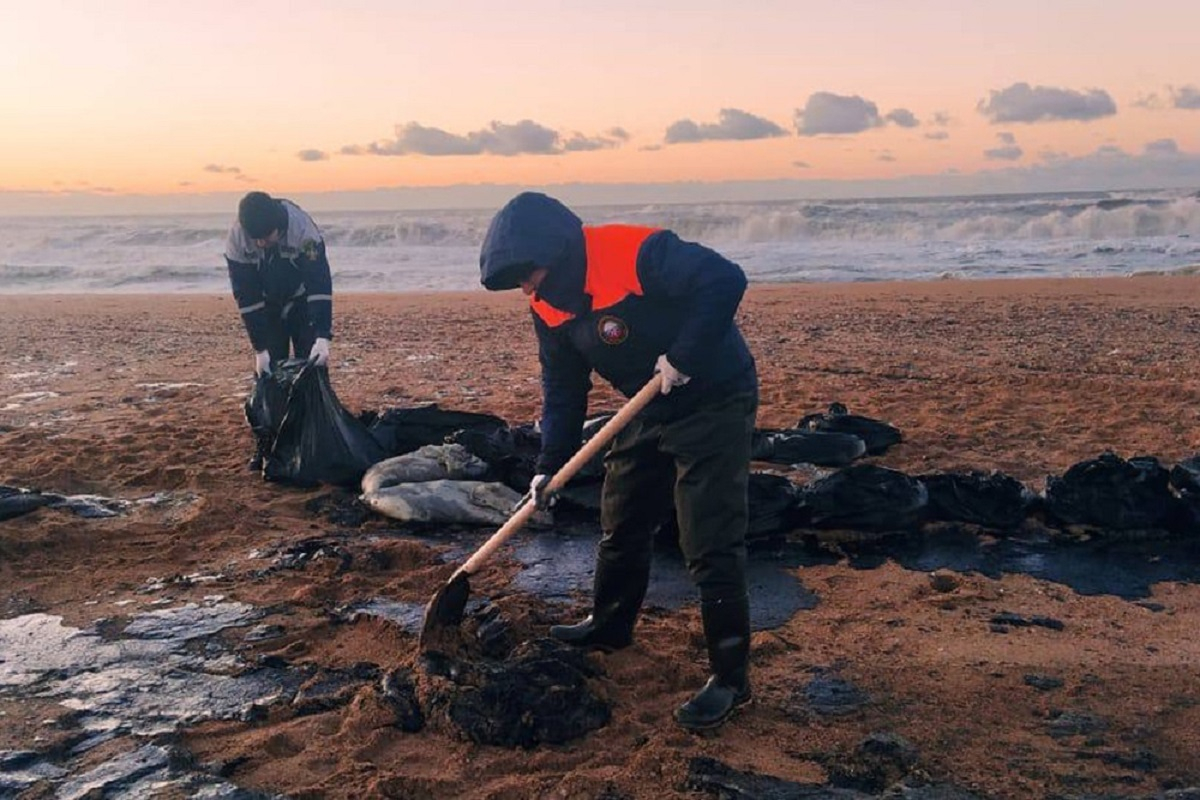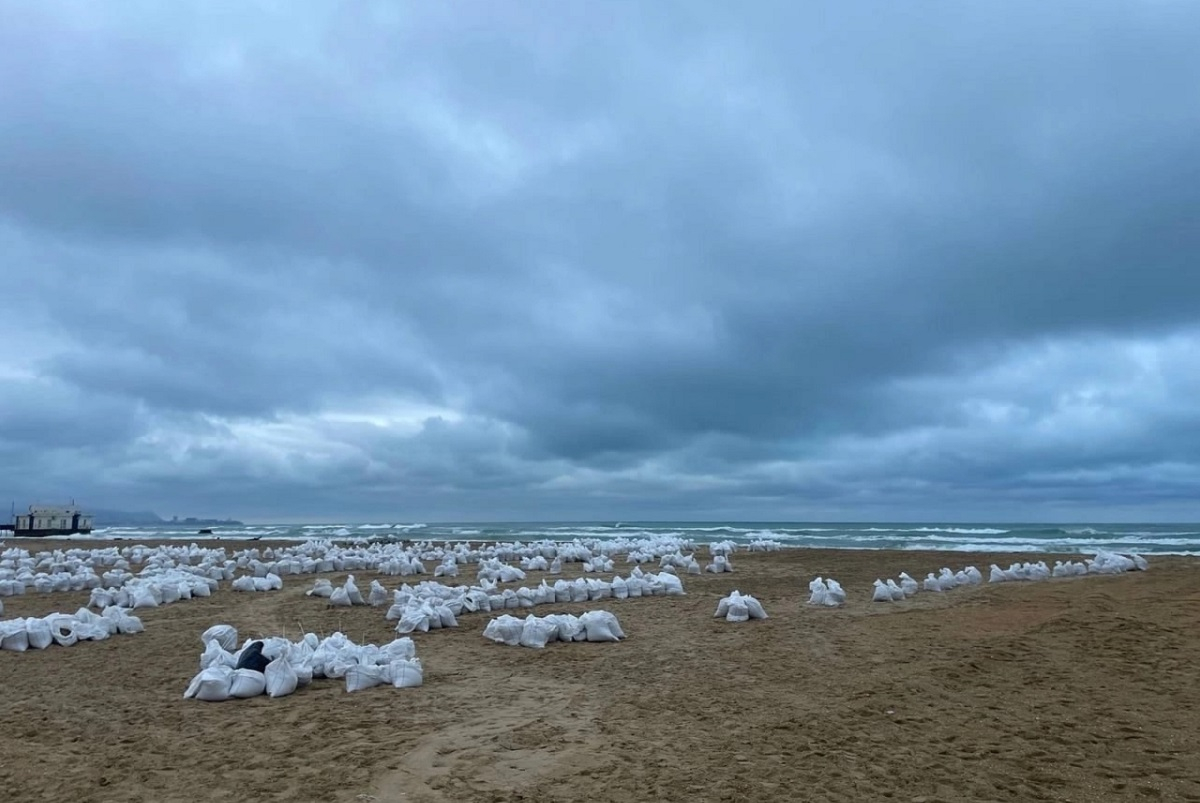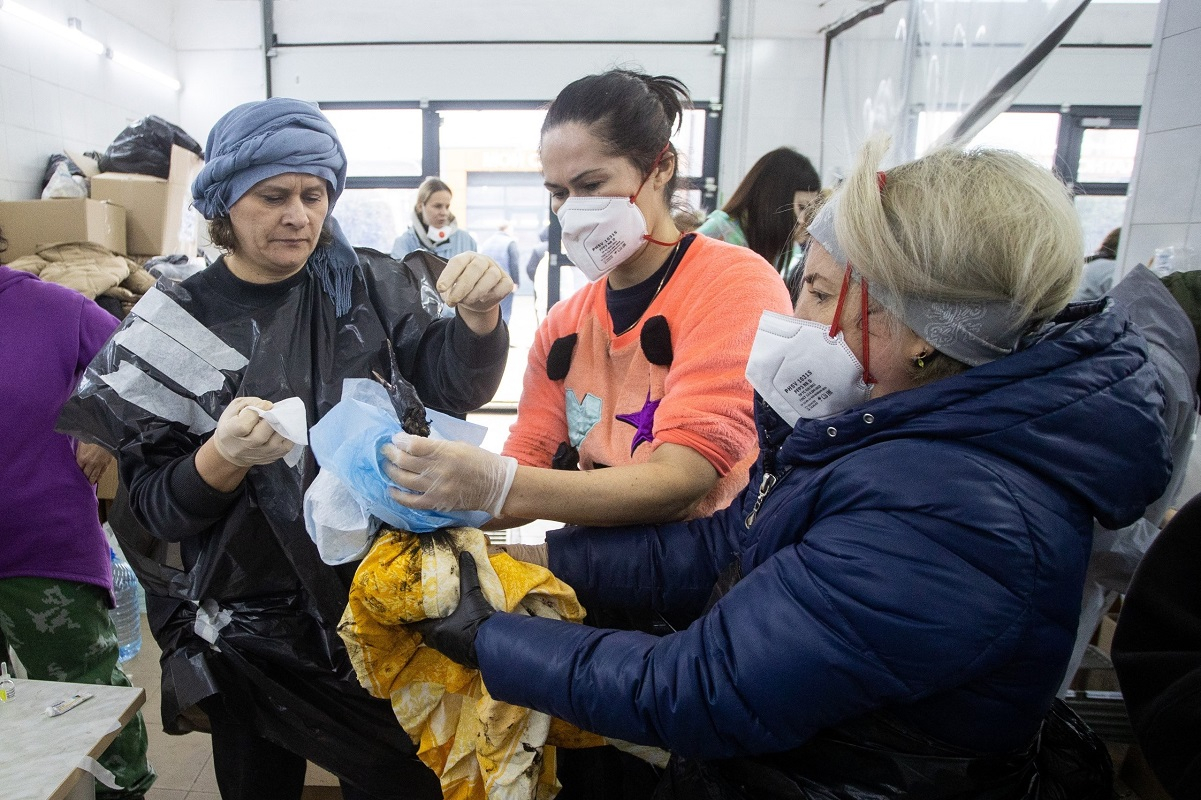The University’s students and graduates help the Black Sea coast: fight against fuel oil spill
Following the recent environmental disaster in the Kerch Strait, urgent action was needed to minimise the consequences and prevent similar incidents in future. A number of volunteer initiatives have been organised to clean up the damage caused by the oil spill, with students and graduates of St Petersburg University taking an active part.
A month ago, two freighters foundered in a storm in the Black Sea, releasing more than 9,000 tonnes of toxic substances into the aquatic environment. The events have had catastrophic consequences for the region’s ecosystem: Anapa’s unique sandy beaches were covered in a layer of oil products, and marine life such as birds, molluscs, fish, phytoplankton and zooplankton, which interact directly with toxic substances, were affected. Long-term effects can manifest themselves in the form of accumulation in animal organisms, leading to the development of various diseases and outbreaks of infection. To date, more than 30 Black Sea harbour porpoise deaths have been recorded.
Local residents, EMERCOM staff and volunteers, including students and graduates of St Petersburg University, are involved in cleaning beaches and working at bird rescue centres. Bogdan Zakopaiko, a graduate of St Petersburg University and a former activist in the Environmental Committee of St Petersburg University’s Student Council, who has also been involved in the preservation of the region’s fauna, said that volunteers survey the coast on foot or on quad bikes, looking for birds covered in oil and taking them to the rescue centre.
The peak of the work was in the first three days when we transported hundreds of birds. In the days that followed, I was busy organising volunteer transport and identifying where the affected animals were congregating. Thanks to the quick action on the first day of the spill, the oil did not get into the estuaries. That gives us hope.
Bogdan Zakopaiko, a graduate of St Petersburg University and a former activist in the Environmental Committee of St Petersburg University’s Student Council
According to Bogdan Zakopaiko, who is also the coordinator of one of the rescue centres for affected birds on the Black Sea coast, volunteers now face a serious problem: only birds severely weakened by oil products can be effectively rescued. Healthier birds quickly leave the polluted areas, flying away from people and noise. The rescue process involves carefully transporting the birds to a specialised centre where they undergo a complex cleaning process using sorbents and detergents. They are then fed and cared for before being sent for further rehabilitation, for example in Stavropol Krai, where the birds undergo a longer course of rehabilitation before being released back into the wild.
In addition to the direct care of the animals, extensive work is being done to clean up contaminated areas of the coast. This labour-intensive process involves the manual collection of untreated sand and soil using shovels. So far, more than 3,000 tonnes of contaminated material have been collected from a 20 kilometre stretch of the Black Sea coast. However, as Bogdan Zakopaiko pointed out, the scale of the pollution is much greater and there is still a lot of work to be done.

Contact with fuel oil can cause dermatitis, allergic reactions and other serious illnesses. Regular briefings and medical support are provided to ensure the volunteers’ health is protected. Kirill Rusanov, a student of St Petersburg University and member of the University’s Student Council, who spent the New Year holidays in Krasnodar Krai, stressed the importance of taking safety precautions when dealing with the aftermath of the environmental disaster.
Heavy fuel oil is no joke, even if a gust of wind on the beach gives the illusion of safety. Protective measures such as personal protective equipment and respirators are essential to stay healthy. One phrase from our chief organiser was memorable: "If volunteers do not help themselves, they will not help anyone else."
Kirill Rusanov, a student of St Petersburg University and member of the University’s Student Council
Coastal cleaning is a long and complex process that requires significant financial and human resources, as well as careful attention to safety measures and the surrounding reality. Efficiency directly depends on the coordinated work of all participants, from the professionalism of rescuers to the civic engagement of volunteers.
In this context, St Petersburg University actively supports environmental initiatives and promotes a sense of personal responsibility for the environment among its students. Under the auspices of the Environmental Committee of the Student Council and the Environmental Department of the University, a community of eco-activists called EcoSPbU operates at St Petersburg University. The students organise regular clean-ups of the University’s territory and adjacent parks, hold educational seminars and lectures on current environmental issues, including climate change, environmental pollution and rational use of resources. As part of these activities, the students learn about the principles of sustainable development, learn how to properly dispose of waste, save energy and water, and explore the possibilities of introducing green technologies into everyday life.





